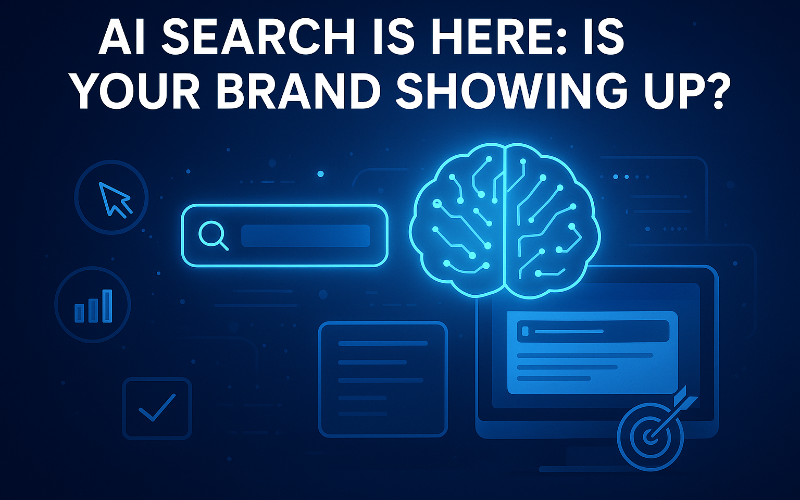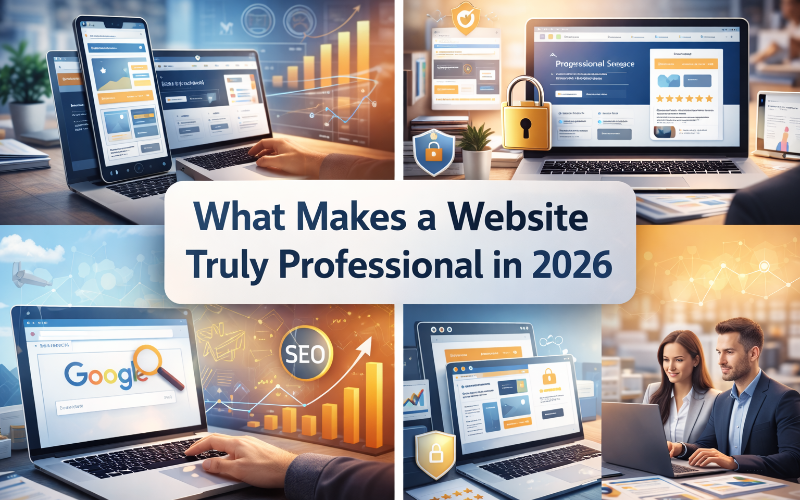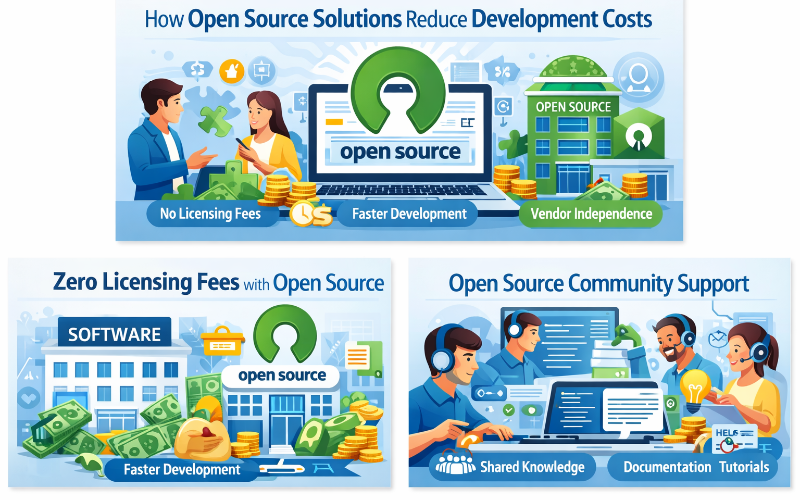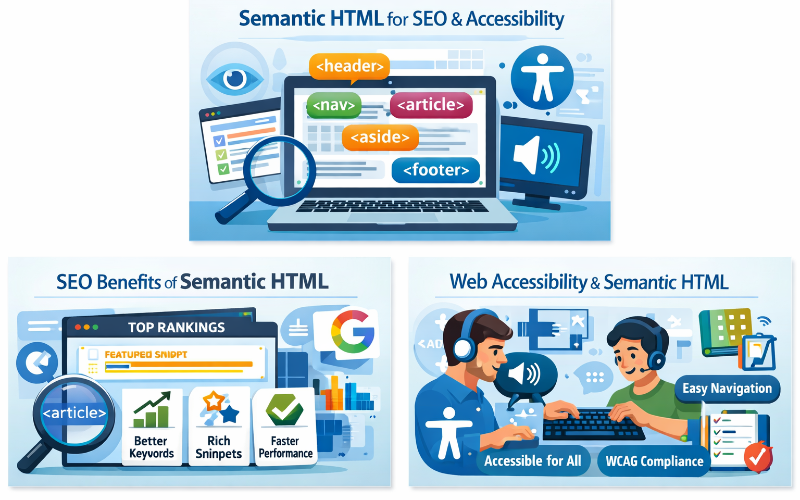12.09.2025
Artificial intelligence is no longer a futuristic buzzword—it’s here, and it’s changing how we find information online. AI-powered search engines, like Google’s Search Generative Experience (SGE), Microsoft’s Copilot, and platforms using ChatGPT, are redefining the way users interact with information.
Instead of simply matching keywords, these systems interpret context, intent, and meaning. This means the old rules of SEO are shifting. Brands that once thrived on keyword stuffing or backlinks alone now need to rethink their digital strategies.
How AI is Changing the Search Landscape
AI search doesn’t just return blue links—it provides direct answers, summaries, and personalized results. In fact, many users may never click through to a website if their query is resolved in the AI-generated response.
For brands, this raises the question: If your company isn’t mentioned in AI-generated answers, do you even exist in the digital conversation?
Traditional SEO vs. AI Search Optimization
Traditional SEO focuses on keywords, backlinks, and metadata.
AI Search Optimization focuses on entities, authority, and trust signals.
AI doesn’t just look at what’s on your website; it pulls information from across the web, evaluates your credibility, and then decides if your brand should be included in answers.
Why Visibility in AI Search Matters for Brands
The Shift in User Behavior and Search Intent
Consumers today expect immediate, conversational answers. With AI search, people phrase queries in natural language, asking full questions like:
- “What’s the best CRM software for small businesses?”
- “Which eco-friendly skincare brands are most trusted?”
If your brand isn’t optimized for conversational queries, you risk losing visibility in these new types of searches.
Trust, Authority, and AI-Powered Recommendations
AI engines prioritize brands that demonstrate trustworthiness, expertise, and authority. This means that companies with strong reputations, credible content, and consistent online mentions are more likely to appear in AI-generated search results.
Think of it as digital word-of-mouth. If AI trusts your brand, users will see your name more often.
Key Factors That Influence AI Search Rankings
Content Quality and Contextual Relevance
AI algorithms don’t just check if you have the right keywords—they evaluate whether your content actually answers user questions in-depth and in context.
Entity-Based Search and Brand Mentions
AI doesn’t see your brand as just a string of letters—it sees it as an entity. If your brand is mentioned across articles, reviews, social media, and news outlets, AI links these mentions together and builds a stronger profile for your brand.
Structured Data and Semantic SEO
Structured data, like schema markup, helps AI understand the relationships between your content. For example, marking up product reviews, FAQs, and business details increases your chances of appearing in AI-powered search snippets.
User Experience and Engagement Metrics
AI also considers how users interact with your website. If people bounce quickly, AI may see your content as less relevant. On the other hand, long session times and high engagement send strong trust signals.
How to Optimize Your Brand for AI Search
Leveraging Conversational Keywords
Instead of targeting short keywords like “digital marketing”, focus on natural phrases like:
- “What is the best digital marketing strategy for small businesses?”
- “How can I improve brand visibility in AI search?”
Creating E-E-A-T Content (Expertise, Experience, Authority, Trust)
To rank in AI-powered search, your brand must demonstrate:
- Expertise – Industry-specific knowledge
- Experience – Real-world applications and case studies
- Authority – Recognition by trusted websites
- Trust – Transparent, reliable, and fact-based content
Optimizing for Featured Snippets and Knowledge Panels
AI often pulls data directly from featured snippets and knowledge panels. Ensuring your content is structured in Q&A, list, or definition formats increases your chances of being cited in AI answers.
The Role of Voice Search and Multimodal AI
With voice assistants like Alexa, Siri, and Google Assistant, as well as multimodal AI like GPT-4o (which handles text, voice, and images), brands must also think beyond text. Optimizing for voice queries and image recognition can unlock new visibility opportunities.
Tools and Strategies for AI Search Optimization
AI-Powered SEO Tools You Should Know
- SurferSEO – Helps optimize for semantic relevance.
- MarketMuse – Suggests topic clusters and authority-building content.
- Schema Markup Generators – Make structured data implementation easier.
Monitoring Brand Visibility in AI-Driven Results
Brands should regularly test queries in AI-driven search platforms to see if they appear. If not, it’s a signal to adjust content strategy.
Case Studies: Brands Winning in AI Search
- Nike dominates AI search for sports apparel because of consistent entity-based mentions.
- HubSpot frequently appears in AI-generated answers about marketing automation due to strong E-E-A-T content.
Common Mistakes Brands Make in AI Search
- Ignoring Structured Data and Schema Markup
Without structured data, AI may overlook important details about your brand. - Overlooking Brand Mentions Across the Web
If your brand isn’t discussed outside your website, AI has fewer signals to trust you. - Relying Only on Traditional SEO Tactics
Keyword stuffing, backlinks, and meta tags alone won’t cut it in AI-driven search.
Future of AI Search and Brand Visibility
The Rise of Generative AI in Search Engines
Search engines are evolving into answer engines. Instead of pointing users to pages, they’re generating complete responses—sometimes with fewer outbound links.
Predictions for the Next 5 Years
- AI will personalize search results based on user history.
- Brands with weak online reputations will virtually disappear from AI search.
- Multimodal search (text, image, voice, video) will become the norm.
FAQs on AI Search and Brand Visibility
1. What is AI search and how does it work?
AI search uses artificial intelligence to understand user intent, context, and entities, delivering personalized, conversational results.
2. Why is my brand not showing up in AI search results?
It may be due to weak entity recognition, lack of structured data, or low brand authority.
3. How do I optimize my brand for AI search?
Focus on E-E-A-T content, structured data, conversational keywords, and consistent brand mentions across the web.
4. Is traditional SEO still relevant in the AI search era?
Yes, but it must evolve. Traditional SEO lays the foundation, while AI search optimization builds authority and context.
5. How important are brand mentions for AI search visibility?
Very important. AI looks beyond websites—it analyzes reviews, social posts, and third-party references.
6. Will AI completely replace traditional search engines?
Not entirely. Traditional search will remain, but AI-driven results will dominate.
Conclusion: Preparing Your Brand for the AI Search Era
AI search is here, and it’s already changing the digital marketing landscape. Brands that adapt quickly—by focusing on trust, authority, structured data, and conversational content—will thrive. Those that cling to outdated SEO tactics risk being left behind.
The question is no longer if AI search will impact your brand, but whether your brand will show up when it matters most.






